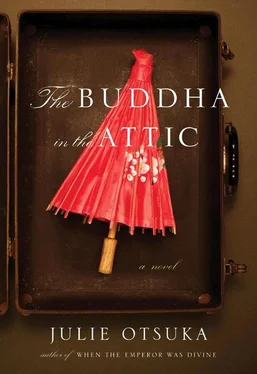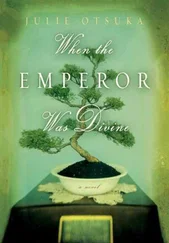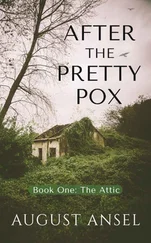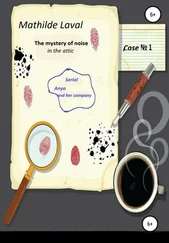BEYOND THE FARM, they’d heard, there were strange pale children who grew up entirely indoors and knew nothing of the fields and streams. Some of these children, they’d heard, had never even seen a tree. Their mothers won’t let them go outside and play in the sun . Beyond the farm, they’d heard, there were fancy white houses with gold-framed mirrors and crystal doorknobs and porcelain toilets that flushed with the yank of a chain. And they don’t even make a smell . Beyond the farm, they’d heard, there were mattresses stuffed with hard metal springs that were somehow as soft as a cloud (Goro’s sister had gone away to work as a maid in the city and when she came back she said that the beds there were so soft she had to sleep on the floor). Beyond the farm, they’d heard, there were mothers who ate their breakfast every morning in bed and fathers who sat on cushioned chairs all day long in their offices shouting orders into a phone—and for this, they got paid. Beyond the farm, they’d heard, wherever you went you were always a stranger and if you got on the wrong bus by mistake you might never find your way home.
THEY CAUGHT TADPOLES and dragonflies down by the creek and put them into glass jars. They watched us kill the chickens. They found the places in the hills where the deer had last slept and lay down in their round nests in the tall, flattened grass. They pulled the tails off of lizards to see how long it would take them to grow back. Nothing’s happening . They brought home baby sparrows that had fallen from the trees and fed them sweetened rice gruel with a toothpick but in the morning, when they woke, the sparrows were dead. “Nature doesn’t care,” we told them. They sat on the fence and watched the farmer in the next field over leading his cow up to meet with the bull. They saw a mother cat eating her own kittens. “It happens,” we explained. They heard us being taken late at night by our husbands, who would not leave us alone even though we had long ago lost our looks. “It doesn’t matter what you look like in the dark,” we were told. They bathed with us every evening, out of doors, in giant wooden tubs heated over a fire and sank down to their chins in the hot steaming water. They leaned back their heads. They closed their eyes. They reached out for our hands. They asked us questions. How do you know when you’re dead? What if there were no birds? What if you have red spots all over your body but nothing hurts? Is it true that the Chinese really eat pigs’ feet?
THEY HAD THINGS to keep them safe. A red bottle cap. A glass marble. A postcard of two Russian beauties strolling along the Songhua River sent to them by an uncle who was stationed in Manchuria. They had lucky white feathers that they carried with them at all times in their pockets, and stones wrapped in soft cloth that they pulled out of drawers and held—just for a moment, until the bad feeling went away—in their hands. They had secret words that they whispered to themselves whenever they felt afraid. They had favorite trees that they climbed up into whenever they wanted to be alone. Everyone please go away . They had favorite sisters in whose arms they could instantly fall asleep. They had hated older brothers with whom they refused to be left alone in a room. He’ll kill me . They had dogs from whom they were inseparable and to whom they could tell all the things they could not tell anyone else. I broke Papa’s pipe and buried it under a tree . They had their own rules. Never sleep with your pillow facing toward the north (Hoshiko had gone to sleep with her pillow facing toward the north and in the middle of the night she stopped breathing and died). They had their own rituals. You must always throw salt where a hobo has been . They had their own beliefs. If you see a spider in the morning you will have good luck. If you lie down after eating you will turn into a cow. If you wear a basket on your head you will stop growing. A single flower means death .
WE TOLD THEM stories about tongue-cut sparrows and grateful cranes and baby doves that always remembered to let their parents perch on the higher branch. We tried to teach them manners. Never point with your chopsticks. Never suck on your chopsticks. Never take the last piece of food from a plate . We praised them when they were kind to others but told them not to expect to be rewarded for their good deeds. We scolded them whenever they tried to talk back. We taught them never to accept a handout. We taught them never to brag. We taught them everything we knew. A fortune begins with a penny. It is better to suffer ill than to do ill. You must give back whatever you receive. Don’t be loud like the Americans. Stay away from the Chinese. They don’t like us . Watch out for the Koreans. They hate us . Be careful around the Filipinos. They’re worse than the Koreans . Never marry an Okinawan. They’re not real Japanese .
IN THE COUNTRYSIDE, especially, we often lost them early. To diphtheria and the measles. Tonsillitis. Whooping cough. Mysterious infections that turned gangrenous overnight. One of them was bitten by a poisonous black spider in the outhouse and came down with fever. One was kicked in the stomach by our favorite gray mule. One disappeared while we were sorting the peaches in the packing shed and even though we looked under every rock and tree for her we never did find her and after that we were never the same. I lost the will to live . One tumbled out of the truck while we were driving the rhubarb to market and fell into a coma from which he never awoke. One was kidnapped by a pear picker from a nearby orchard whose advances we had repeatedly rebuffed. I should have just told him yes . Another was badly burned when the moonshine still exploded out back behind the barn and lived for only a day. The last thing she said to me was “Mama, don’t forget to look up at the sky.” Several drowned. One in the Calaveras River. One in the Nacimiento. One in an irrigation ditch. One in a laundry tub we knew we should not have left out overnight. And every year, in August, on the Feast of the Dead, we lit white paper lanterns on their gravestones and welcomed their spirits back to earth for a day. And at the end of that day, when it was time for them to leave, we set the paper lanterns afloat on the river to guide them safely home. For they were Buddhas now, who resided in the Land of Bliss.
A FEW OF US were unable to have them, and this was the worst fate of all. For without an heir to carry on the family name the spirits of our ancestors would cease to exist. I feel like I came all the way to America for nothing . Sometimes we tried going to the faith healer, who told us that our uterus was the wrong shape and there was nothing that could be done. “Your destiny has been settled by the gods,” she said to us, and then she showed us to the door. Or we consulted the acupuncturist, Dr. Ishida, who took one look at us and said, “Too much yang,” and gave us herbs to nourish our yin and blood. And three months later we found ourselves miscarrying yet again. Sometimes we were sent by our husband back home to Japan, where the rumors would follow us for the rest of our lives. “Divorced,” the neighbors would whisper. And, “I hear she’s dry as a gourd.” Sometimes we tried cutting off all our hair and offering it to the goddess of fertility if only she would make us conceive, but still, every month, we continued to bleed. And even though our husband had told us it made no difference to him whether he became a father or not—the only thing he wanted, he had said to us, was to grow old by our side—we could not stop thinking of the children we’d never had. Every night I can hear them playing outside my window in the trees .
Читать дальше












